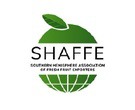The Southern Hemisphere Association of Fresh Fruit Exporters (SHAFFE) has urged the U.S. government to exempt fresh fruit from its proposed reciprocal tariffs, warning that the measures would disrupt global supply chains, raise consumer prices, and reduce access to healthy foods.
Dear Mr President,
The Southern Hemisphere Association of Fresh Fruit Exporters (SHAFFE) represents the leading fresh fruit production and export associations from Australia, Brazil, Chile, New Zealand, Peru, South Africa, Uruguay, and Zimbabwe. Together, our members export nearly 12 million tonnes of fresh fruits annually, valued at over USD 15 billion—roughly 15 percent of global trade in fresh fruits.
We write to express deep concern regarding the "reciprocal tariff policy" signed on April 2, 2025. Though its implementation has been delayed by 90 days, the proposed tariffs on imported fresh fruits would significantly disrupt global supply chains, destabilize markets, and raise consumer costs.
The fresh fruit trade is uniquely complex, shaped by seasonality and geography. Import-dependent markets like the U.S. rely heavily on predictable and diversified global supply. Tariff-induced disruptions would reduce year-round fruit availability, increase inflationary pressure, and diminish consumer choice.
The U.S. imports 60 percent of its fresh fruits, with Mexico accounting for more than half and the Southern Hemisphere supplying counter-seasonal fruits that fill market gaps. These imports keep retailer shelves stocked, stabilize prices, and support existing infrastructure. They also allow U.S. exporters to maintain reciprocal trade flows, benefiting jobs and economic growth.
Import tariffs, contrary to popular belief, are paid by domestic importers and passed on to consumers. Estimates suggest the April 2 tariffs could cost each American household up to USD 5,000 annually. With average household spending on fruit already over USD 600 per year, rising prices could reduce access to essential nutrition, exacerbating public health challenges like obesity and cancer.
Today, nearly 29 percent of U.S. children and 40 percent of adults consume less than one-quarter of the recommended daily fruit intake. Higher fruit prices will likely worsen this trend. In parallel, U.S. growers—who depend on imported inputs like fertilizer and equipment—will face cost hikes, further fueling grocery inflation.
This outcome contradicts the administration's commitment to lowering food prices and improving food security. The fresh fruit trade is an interconnected global network built over decades. Damage from losing U.S. market access will be long-lasting and difficult to reverse, affecting growers and businesses globally.
We strongly urge your administration to exempt fresh fruits from any new tariff measures to avoid severe consequences for growers, businesses, and consumers in the United States and abroad.
Yours sincerely,

Nathan Hancock
President, Southern Hemisphere Association of Fresh Fruit Exporters
For:
Australia – AMIA, ATGA, Avocados Australia, Citrus Australia, Summerfruit Australia
Brazil – Abrafrutas
Chile – Frutas de Chile
Peru – AGAP, ProCitrus
South Africa – Berries SA, CGA, Fruit SA, FPEF, Hortgro, Subtrop, SATI
Uruguay – UPEFRUY
Zimbabwe – Horticultural Development Council
 For more information:
For more information:
SHAFFE
Tel: +39 36689 20951
Email: secretariat@shaffe.net
www.shaffe.net
